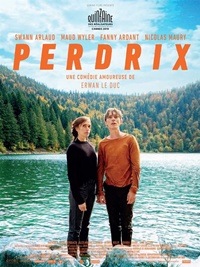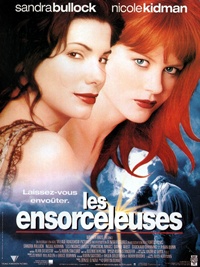
Pour lire cette interview en français, cliquez ici.

FilmsdeLover.com : There is basically nothing about you on the Internet so my first question is probably going to be : Who are you, Mark Bradshaw ?
Mark Bradshaw : I’m a young composer, 27 years old, and I’ve just started writing music for the screen. I studied experimental music at the College of Fine Arts in Sydney, Australia. I’m currently based in London, and enjoying the season of spring.
How did you happen to work with Jane Campion ?
M.B.: A few years ago I invited Jane Campion to one of my shows, I was performing my own compositions with a string/voice ensemble, she really enjoyed the show and from there we became good friends. Jane first asked me to put an hours worth of music together for her 50th birthday party. The theme of the party was ‘The After Life’. Jane then asked me to compose the music for ‘Bright Star’. While we were waiting to make "Bright Star", Jane and I collaborated on two short films, ‘The Water Diary’ and ‘The Lady Bug’.
As a huge listener of instrumental soundtracks, I find that some of the instruments you used throughout the soundtrack and the sound they produce are not so common, for example during the first notes of "Negative Capability". Can you tell me more about the instruments you used and why you decided to use them ?
M.B. : Jane was clear from the start that she didn’t want the music to sound like conventional “film music”. This liberated me to think laterally about the music. I used meditation bowls and a harpsichord to create the sounds that you hear at the beginning of ‘Negative Capability’.
I wanted to express an unseen energy, that kind of electricity that passes between two people who are discovering love for the first time. A shimmering “feather-bowed” violin motif then follows - I wanted to suggest a feeling of weightlessness.
"Bright Star" is a very intimate and very tender story. There’s rawness and vulnerability to it. I felt that writing for a small ensemble featuring soloing instruments like violin, cello, and harpsichord would be most appropriate to the love story that's at the heart of the film.
On the CD, we can hear Ben Whishaw and Abbie Cornish's voices reading some of John Keats' poems over some of the tracks. Is it because you think your music can't be separated from the poems ?
M.B. : It made sense to include Keats’ poetry on the CD, as his poetry is the true music of the film. I felt that the combination of poetry and music was effective for some of the pieces.
From where did you draw the inspiration to compose the themes on the soundtrack ?
M.B. : I wanted the music to come from within the story and within the internal rhythms of the characters. Fortunately I had Keats’ poetry and letters to help me enter into the characters. Keats’ theory of “Negative Capability” was particularly helpful. That is “being in uncertainties, mysteries, doubts without any irritable reaching after fact and reason”. I became interested in the “negative space” within music.
The vocal duet at the beginning and end of the film is my attempt to capture the playfulness that Keats and Fanny shared - Keats called her a “Minxtress”. The piece is based on Mozart’s Adagio from his Serenade K361 for winds. The ‘Human Orchestra’, also based on the same Mozart piece, is something that Keats and his circle of friends actually did. They would get together and learn the parts to their favorite Mozart or Beethoven. None of them were trained musicians. They were the first garage band.
I find that there is a very organical feel to some of the tracks, in particular "Letters" and "Negative capability", almost as if I could feel the nature around me. Am I plain crazy or was it intended ?
M.B. : All of the pieces were conceived and constructed fairly organically and intuitively. Nature is a huge inspiration.
I was really surprised not to hear any music at the end of the film, when Fanny learns that John has died. Was it a concerted choice with the director ?
M.B. : We didn’t want the music to dictate the audience’s emotions. We didn’t want to manipulate or force the audience into feelings. There were a few scenes where we knew it wouldn’t be helpful to have music. I discovered that music is more powerful when it is used sparingly. I think Fanny’s breakdown scene and her reading of the poem ‘Bright Star’ at the end of the film actually gain impact from the absence of score.
Last question, which is a bit of a classic on our website : What are your three favorite romance films ?
M.B. : "Wings of Desire", "In the Mood for Love", "The Piano".
"Bright Star" soundtrack is out and you should buy it here for example.
Share this post...
















 Created with love
in Normandy
Created with love
in Normandy
Écrire commentaire